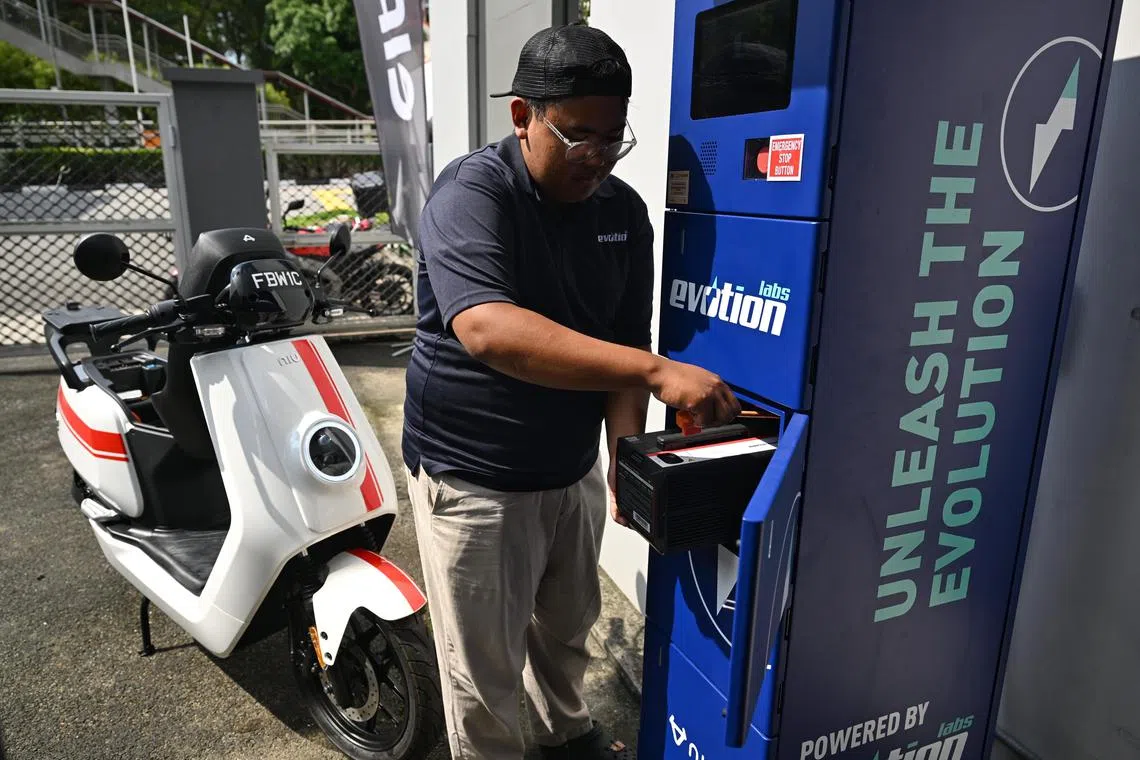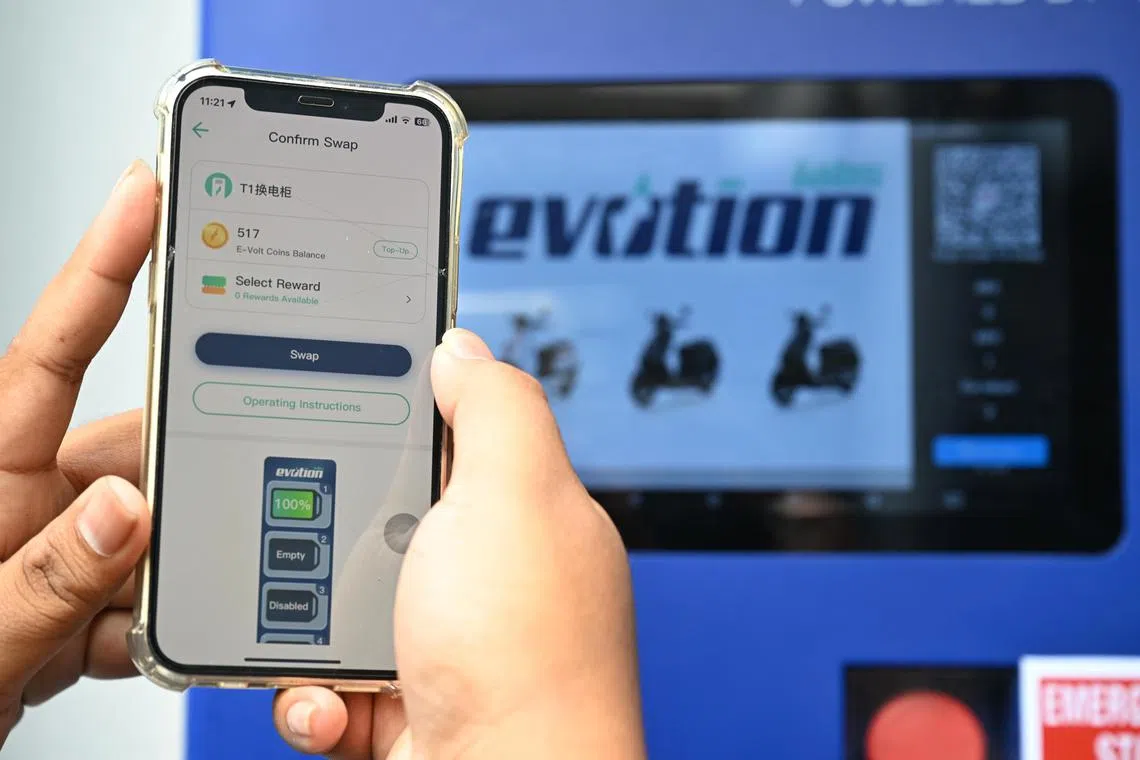S’pore firm Evotion Labs launches first commercial battery swop service for electric motorcycles
Sign up now: Get ST's newsletters delivered to your inbox

A spent battery can be exchanged for a fully charged one in a matter of minutes.
ST PHOTO: CHONG JUN LIANG
SINGAPORE - A company has launched a battery swopping service for electric motorcycles – the first of its kind in Singapore.
Evotion Labs has rolled out one battery charge and swop station at 1179 Serangoon Road, which is a motorcycle showroom and workshop owned by the company’s backer Mah Pte Ltd, an established motorcycle distributor.
The second station at One-North Crescent, where the headquarters of technology company Razer is located, will be ready in mid-June.
These stations allow users to exchange empty batteries from an electric motorcycle for fully charged ones – a process that takes a few minutes.
Evotion told The Straits Times that it will have 22 stations by the end of 2024, and plans to spend up to $4 million to expand to 400 stations in the next two years.
Along with the swopping service, Evotion is selling the Niu NQi GTS electric motorcycle, which has been approved by the authorities to use battery swopping technology in Singapore.
Currently, fleet-owning companies can use the battery swopping service from Evotion. They can opt to have the swop stations installed at their own premises or use the ones set up by Evotion, which was incorporated in 2021.
Individuals will be able to use Evotion’s battery charge and swop stations when the company’s application for the electric vehicle charging operator licence is approved.
Companies operating public charging points in malls are required to have this licence.
The Land Transport Authority (LTA) confirmed that Evotion Labs is the only company dealing with battery swopping for electric motorcycles to have applied for the licence.
LTA had introduced the rules governing battery charge and swop technology for electric motorcycles in March 2022, and allowed two companies to test out the technology here in 2023.
One has completed its test with no plans to offer the service commercially while another, by Taiwanese company Gogoro, is ongoing. Its permit to test expires in September 2024.
Each Niu electric motorcycle carries two batteries and can travel up to 120km on a full charge. The rider can opt to exchange either one or both batteries for fresh ones at the battery charge and swop station using a dedicated smartphone app.
The charge and swop stations will only work with batteries that are officially supplied by Evotion Labs.
As part of getting the approval from LTA, the electric motorcycle’s onboard charger was removed. This means that the only way to get battery power is to swop batteries at the dedicated stations.
Buyers of the electric motorcycles are also required to declare that they will not charge the vehicle through illegal means.
It costs $8 to fully charge the two batteries when they are flat – nearly 6.7 cents per kilometre. The rider can swop the batteries at any stage for fresh ones.
The electric motorcycle, whose performance is comparable to a conventional scooter, costs $17,500 to buy, including the certificate of entitlement (COE).
Maintenance cost for the electric motorcycle is expected to be lower than comparable ones with an internal combustion engine as there is no need for periodic oil change.
A conventional scooter like the Yamaha Aerox costs around $15,000 with COE. At today’s fuel prices, using 92-octane petrol, the Yamaha will cost around five cents per kilometre.
Experts consider battery swopping technology as a viable solution for electric motorcycles to get around the issue of spending hours to charge up, only to be able to travel a relatively short distance. Due to their compact size, electric motorcycles cannot carry batteries that are large enough to allow them to go further before needing to be plugged in again.

The rider can swop the batteries at any stage for fresh ones.
ST PHOTO: CHONG JUN LIANG
Niu motorcycles have been sold in Europe for some time. Evotion’s spokesman said this meant that the brand had the required certifications to be approved for sale in Singapore, instead of having to commission new tests. He also said that the company will ensure that the battery charging and swopping system will be compatible for current as well as future models.
Evotion’s spokesman told ST that the business is here “for the long run”, and that users can trade in the Niu motorcycles to Mah Pte Ltd at “fair market value” in the unlikely event that the swopping service is stopped.
As at the end of April, 0.2 per cent of the motorcycles (282 units) on the road are electric compared to 2.6 per cent for commercial vehicles (3,696 units) and 2.4 per cent for cars (15,713 units).



